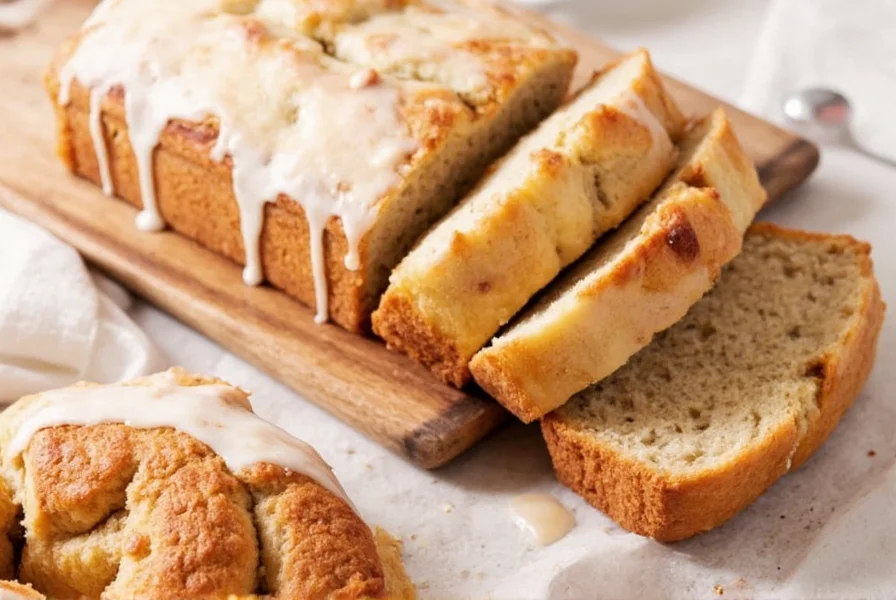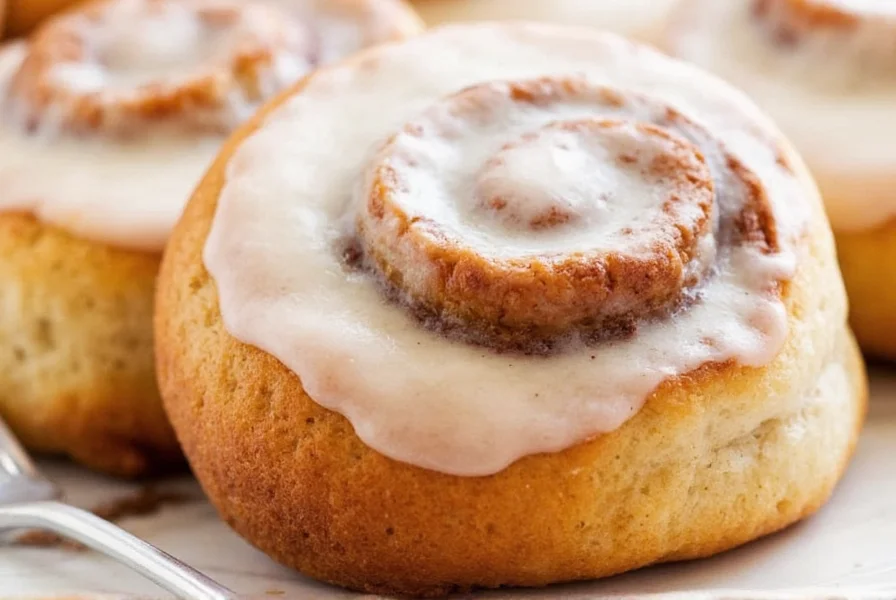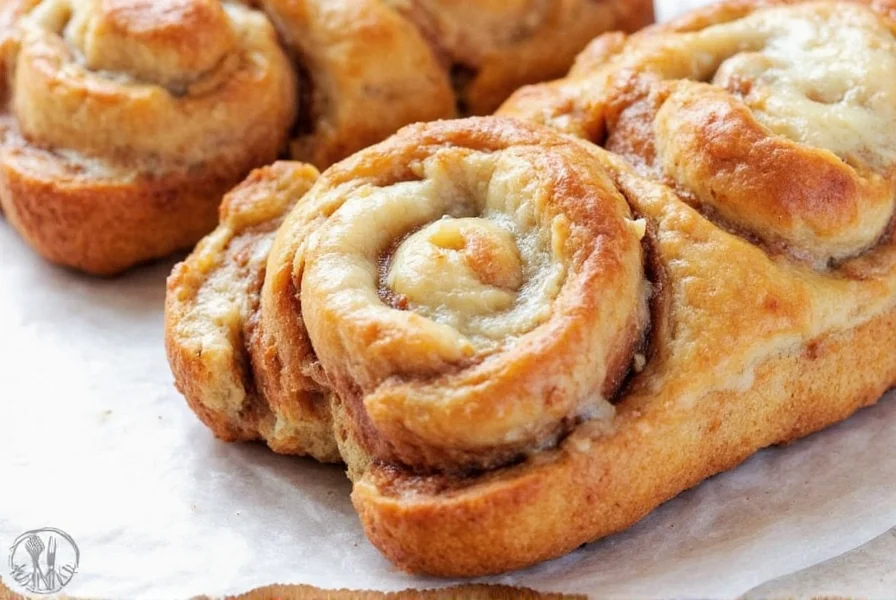If you've ever wondered how to merge two breakfast classics into one irresistible pastry, banana bread cinnamon rolls deliver exactly that. These decadent treats solve the dilemma of choosing between banana bread's comforting sweetness and cinnamon rolls' aromatic spice. The magic happens when ripe bananas are incorporated into a enriched yeast dough, creating a tender base that perfectly complements the signature cinnamon-brown sugar swirl. Unlike traditional banana bread which relies on chemical leaveners, these rolls use yeast for that distinctive pull-apart texture while maintaining banana bread's characteristic moist crumb.
The Science Behind the Perfect Hybrid Pastry
Creating successful banana bread cinnamon rolls requires understanding how these two distinct recipes complement each other. Banana bread typically uses baking soda as a leavener and relies on mashed bananas for moisture and sweetness. Cinnamon rolls use yeast for rise and structure. The key to merging them successfully lies in balancing the moisture content from the bananas with the yeast dough's requirements.
Ripe bananas (with brown speckles) provide natural sweetness and moisture while adding enzymes that help break down flour starches, resulting in a more tender crumb. When incorporated into a yeast dough at about 20-25% of the total liquid content, they enhance flavor without compromising the dough's structure. The banana's acidity also interacts favorably with the yeast, promoting better fermentation and flavor development.
Essential Ingredients Breakdown
The following table outlines the critical components and their roles in creating perfect banana bread cinnamon rolls:
| Ingredient | Function | Pro Tip |
|---|---|---|
| Ripe bananas (1 cup mashed) | Provides moisture, natural sweetness, and tender crumb | Freeze overripe bananas then thaw for easier mashing and intensified flavor |
| Bread flour (3-4 cups) | Higher protein content supports structure with banana moisture | Substitute 25% with cake flour for extra tenderness |
| Active dry yeast (2¼ tsp) | Leavening agent for proper rise and texture | Bloom in warm milk with 1 tsp sugar before adding to mixture |
| Brown sugar (¾ cup) | Complements banana flavor and enhances caramel notes | Use dark brown sugar for deeper molasses flavor |
Step-by-Step Preparation Guide
Follow these professional techniques for flawless banana bread cinnamon rolls every time:
- Prepare banana puree: Mash one cup of very ripe bananas until completely smooth, pressing through a fine mesh sieve to remove any stringy fibers that could weaken the dough structure.
- Mix dough: Combine warm milk (110°F), mashed bananas, melted butter, eggs, sugar, and yeast. Gradually incorporate flour and salt until a shaggy dough forms.
- Knead properly: Knead 8-10 minutes until smooth and elastic. The banana moisture means you'll need less additional liquid than standard cinnamon roll recipes.
- First rise: Let dough rise in a greased bowl until doubled (60-90 minutes). The bananas accelerate fermentation, so check frequently to prevent over-proofing.
- Roll and fill: Roll dough into a 16x12 inch rectangle. Spread evenly with softened butter, then layer with cinnamon sugar mixture and optional chopped walnuts or pecans.
- Shape carefully: Roll tightly from the long side, pinch seam closed, and slice with dental floss for clean cuts that won't squish the rolls.
- Second rise: Let rolls rise 30-45 minutes until puffy. They should nearly double in size but still spring back slowly when gently pressed.
- Bake perfectly: Bake at 350°F for 22-28 minutes until golden brown. Internal temperature should reach 190°F for optimal texture.

Avoiding Common Pitfalls
Many home bakers encounter issues with banana bread cinnamon rolls. Here's how to prevent the most frequent problems:
- Dense texture: Caused by overmixing after adding bananas or using unripe fruit. Always use speckled bananas and mix just until combined after adding banana puree.
- Falling apart when sliced: Results from under-proofed dough or improper rolling technique. Ensure proper second rise and use dental floss rather than a knife for clean cuts.
- Soggy bottom: Occurs when banana moisture isn't properly balanced. Reduce other liquids by 10-15% when incorporating banana puree.
- Bland flavor: Using insufficient cinnamon or not toasting spices. Bloom cinnamon in melted butter before making the filling for intensified flavor.
Delicious Variations to Try
Once you've mastered the basic recipe, experiment with these popular adaptations:
- Cream cheese swirl: Add 4 oz softened cream cheese to the banana dough and another 4 oz to the filling for a tangy contrast to the sweet banana flavor.
- Gluten-free version: Substitute with 1:1 gluten-free flour blend and add 1 tsp xanthan gum. Increase banana content by 2 tbsp to compensate for drier texture.
- Vegan adaptation: Replace dairy with almond milk, use vegan butter, and substitute eggs with flax eggs (1 tbsp ground flax + 3 tbsp water per egg).
- Mini banana bread cinnamon rolls: Roll dough thinner and cut into 1-inch pieces for bite-sized treats that bake in 15-18 minutes.
Storage and Serving Recommendations
For optimal freshness and flavor:
- Store cooled rolls in an airtight container at room temperature for up to 2 days
- Refrigerate for up to 5 days, but bring to room temperature before serving
- Freeze unbaked rolls on a parchment-lined baking sheet, then transfer to freezer bags for up to 3 months. Bake from frozen, adding 5-8 minutes to baking time.
- Reheat individual rolls by microwaving 10-15 seconds or warming in a 300°F oven for 5 minutes
- Serve with brown butter glaze (melt 4 tbsp butter until nutty brown, then mix with 1 cup powdered sugar and 1-2 tbsp milk) for enhanced flavor complexity

Frequently Asked Questions
Can I use unripe bananas for banana bread cinnamon rolls?
No, unripe bananas lack the necessary sweetness and enzymatic activity that contribute to both flavor and texture. For optimal results, use bananas with brown speckles on the peel, which indicates peak ripeness. These contain higher sugar content and natural enzymes that help tenderize the dough. If you only have green bananas, place them in a paper bag with an apple for 1-2 days to accelerate ripening.
Why did my banana bread cinnamon rolls turn out dense?
Dense rolls typically result from one of three issues: overmixing the dough after adding banana puree, using too much flour, or under-proofing. Banana's moisture means you'll need 10-15% less additional liquid than standard cinnamon roll recipes. Measure flour properly by spooning into measuring cups and leveling off—don't scoop directly. Ensure proper rising time until the dough has visibly doubled but still springs back slowly when gently pressed.
How can I prevent the filling from leaking out during baking?
To prevent filling leakage, ensure your dough is rolled tightly but not stretched thin. Leave a ½ inch border along the edge farthest from you when rolling, and pinch the seam closed firmly. Chilling the shaped rolls for 15 minutes before the final rise helps solidify the filling. Using a brown sugar filling (rather than white sugar) creates a thicker, less runny consistency that holds its position better during baking.
Can I make banana bread cinnamon rolls without yeast?
While traditional cinnamon rolls require yeast for their distinctive texture, you can create a hybrid version using baking powder and baking soda as leaveners. Replace the yeast dough with a modified banana bread batter, pour into a cinnamon-swirled bundt pan, and bake as a cake. However, this creates more of a banana bread with cinnamon swirl than true pull-apart cinnamon rolls. For authentic texture, yeast is essential to achieve the characteristic layered structure.











 浙公网安备
33010002000092号
浙公网安备
33010002000092号 浙B2-20120091-4
浙B2-20120091-4